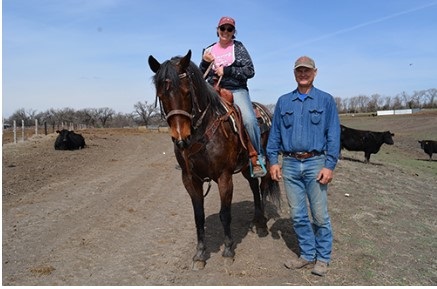WASHINGTON, D.C. – Four U.S. senators have struck a deal on a livestock price discovery bill to expand negotiated cash trade for cattle and a contract library to provide producers details of marketing contract premiums and discounts being set by packers.
The four main sponsors include Sens. Chuck Grassley, R-Iowa; Deb Fischer, R-Neb.; Jon Tester, D-Mont. and Ron Wyden, D-Ore. Grassley and Tester had previously introduced a bill that competed with one led by Fischer.

The Cattle Price Discovery and Transparency Act would establish regional mandatory minimum thresholds for negotiated cash and grid trades based on each region’s 18-month average negotiated cash trade volumes.
To set those levels of cash and grid trades, USDA would seek public comment and set the minimum levels, though no regional minimum could be more than three times that of the lowest regional minimum, and no regional minimum could be lower than the 18-month average trade at the time the bill is enacted.
Grassley had been pushing for each state to achieve 50% negotiated cash trade, while Fischer has pushed for a more regional approach that was struck in the deal. Still, Grassley told reporters that negotiated cash trade in a state such as Texas is down to just about 6% of the state’s fed cattle sales, and the bill would increase that level significantly.
The senators plan to introduce the Cattle Price Discovery and Transparency Act in the coming days. Specifically, the legislation will:
–Requires the Secretary of Agriculture, in consultation with the USDA Chief Economist, to establish mandatory levels of negotiated cash and negotiated grid trade for each USDA AMS designated cattle region, seek public comment on those levels, then implement. Under this new program, covered packers—on a plant by plant basis—will be required to procure a certain amount of cattle from the cash market.Allows USDA to periodically modify regional minimums after a public notice and comment period.
–Mandates that regional mandatory minimums proposed by USDA be not less than the current 18-month average for each region except in the case a region’s mandatory minimum exceeds 3 times that of the lowest regional mandatory minimum.
–To ensure that no region disproportionately shoulders the responsibility of price discovery, this legislation prohibits any region’s mandatory minimum from being 3 times that of the lowest region’s mandatory minimum.
–Requires a cost benefit analysis after 2 years to ensure the program is working as intended
Senator Fischer said of the compromise, “Robust price discovery ensures that all members of the beef supply chain — cow-calf producers, feeders, packers, and consumers — can be successful. The foundation of price discovery in the cattle market is negotiated cash sales.”
She continued,“One or two regions of the country should not have to shoulder the burden of price discovery and that’s exactly what has been happening. Even regions that primarily use alternative marketing arrangements (AMAs) such as formula contracts, predominantly rely on negotiated cash sales to set their base prices. Our compromise proposal takes regional differences into account and ensures fairness for every segment of the supply chain,” said Fischer.
While the four senators struck a deal for them to jointly introduce a bill, it remains to be seen how the chairwoman and ranking member of the Senate Agriculture Committee will treat the legislation.
Congress has been unable to strike an agreement for a five-year reauthorization of the Livestock Mandatory Price Reporting Act (LMR). Instead, Congress has passed multiple short-term extensions to keep the law in place without making any changes to the bill.
U.S. Cattlemen’s Association (USCA) Region Director Lee Reichmuth observed, “The Cattle Price Discovery and Transparency Act will deliver on its promise to restore robust price discovery and provide market participants with the information they need to make savvy marketing decisions. It also mandates that every packer is required to report to USDA. AMS is also required to participate in the cash market each week.”
Ethan Lane, vice president of government affairs for the National Cattlemen’s Beef Association (NCBA, stated that the group is still reviewing the language of the bill and comparing it to NCBA’s policy, though “It would appear that, as in previous versions, we can support much of this bill.”
Lane added, though, that NCBA’s policy also directs the group to oppose government mandates on cattle marketing methods.
“We take the discussions and deliberations that go into our grassroots policy process seriously, and we will hold this bill — as we would any other — up against the policy of this association,” Lane said.












